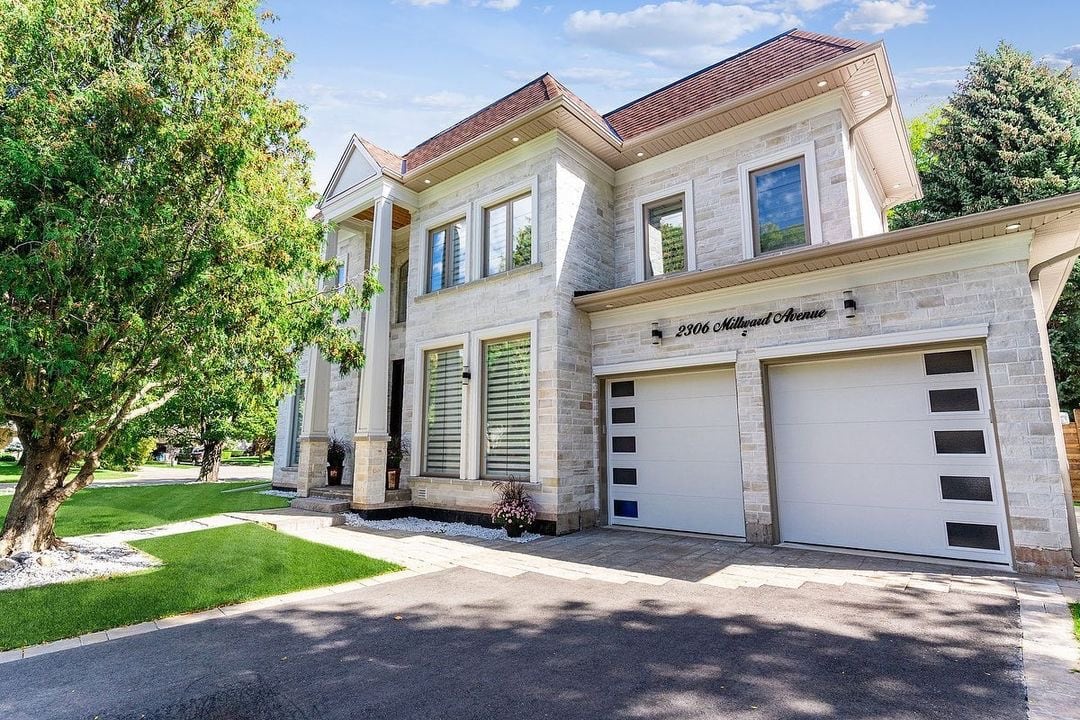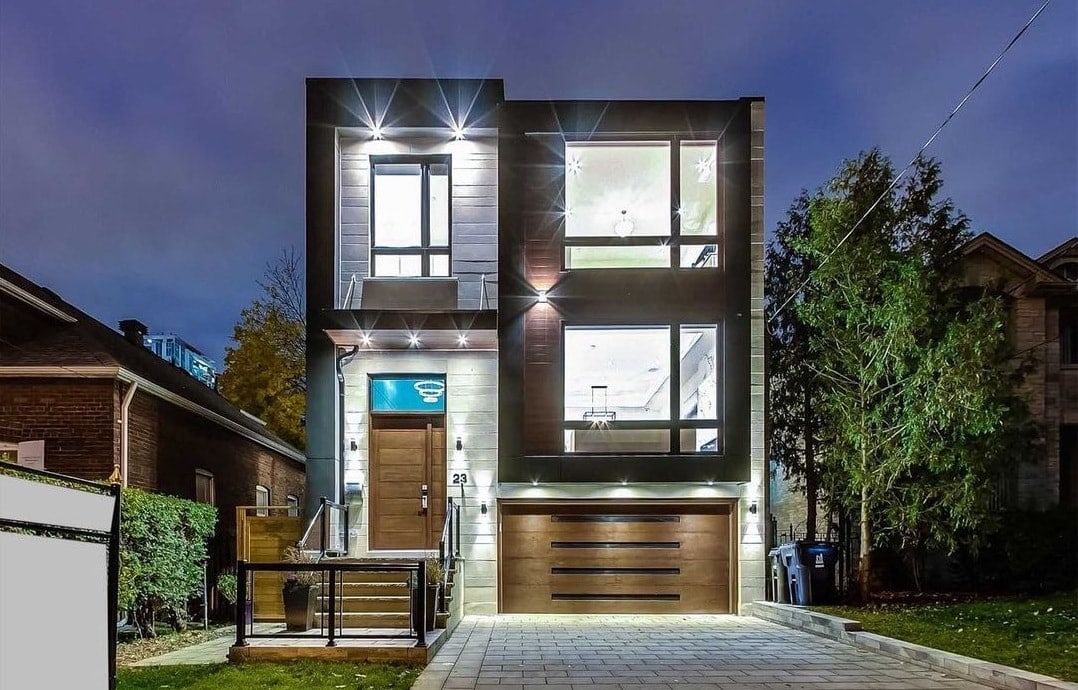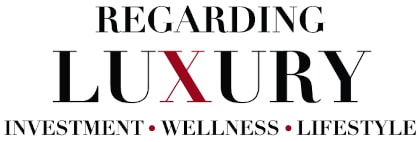With both fixed and variable rate mortgage rates increasing, as a wealthy real estate investor you may be wondering if you should change your mortgage strategy. Does borrowing a mortgage to invest in real estate still make sense or should you pay in cash for properties instead? Let’s take a look and find out.
Variable mortgage rate update
For the first time in over 3 years, the Bank of Canada increased interest rates in early March. We all knew it was coming, but still, it was a bit surprising for some to see.
This won’t be the only rate increase the Bank of Canada does. It’s expected to do several rate increases over the next couple of years. Our central bank is doing these rate increases to give it some buffer for the next time that we have a recession and need to cut rates. It is also raising rates in an effort to rein in inflation, which is at a 30 year high in Canada.
As an affluent investor, you may be wondering what to do after this rate increase. To better understand your next step, it helps to put it into perspective.

What does the savvy investor do?
For every 0.25% increase to prime rate, it only means a $12 increase in your monthly payment for every $100,000 in mortgage money that you’ve borrowed. Does this seem a lot more manageable now?
Let’s say rates went up 4 to 5 times. That would only mean an increase of $48 to $60 for every $100,000 of mortgage money borrowed, when all was said and done. By sticking with variable rate, you’re still coming out way ahead if you went with the fixed rate (more on that below).
With the variable rate available in the low 2%’s, it’s still a lot cheaper than cashing out your investments to buy a property in cash. Even if the variable rate goes up to 3% or 4%, you’re still at or below the level of the fixed rate. And more importantly, you’re still earning a lot more from your investments. That’s why it most likely makes sense to stick with the current investment strategy that you have.
Fixed mortgage rate update
If you’re in a variable rate mortgage you might be considering locking into a fixed rate mortgage. Also, if planning to buy a property in the near future, or you’ve just purchased a property and you’re looking for a mortgage, you might be considering fixed rate over variable rate. Certainly, it’s always a good idea to do your due diligence before signing up for a mortgage. However, if you haven’t been paying attention to fixed rates for a while, a lot has changed.
The days of the 5-year fixed rate being available below 2% are long gone. Those rates went away at least 6 months ago. Since then fixed mortgage rates have been skyrocketing. In fact, we are seeing some fixed mortgage rates above 4% for the first time in over 3 years. This is quite a shock for those who haven’t been following mortgage rates closely.
The reason for the steep increase is bond yields. Bond yields are what drive the pricing of fixed mortgage rates. The higher bond yields go, the higher fixed mortgage rates go. We are seeing bond yields at levels we haven’t seen since the beginning of the pandemic, which explains why fixed mortgage rates are up so sharply.

Rising mortgage rates: Which road do I take?
That being said, it’s important to put everything into perspective. Fixed mortgage rates may be close to 4%, but inflation as it least that. In fact, Canada is at a 30 year high for inflation. That means that money is still essentially free to borrow. As an affluent investor, you’re still much better off borrowing the money by way of a mortgage, even if you can afford to pay for the property in cash, as it will cost you a lot more cashing out your investments earnings 7-8% return than it will be to borrow the money.
Also keep in mind that in many cases when you borrow to invest the interest is tax deductible. If you’re in the 50% tax bracket, that 4% you’re paying on paper for the mortgage, is only less than 2% once you claim the mortgage interest on your tax return.
You are paying quite a premium to go with fixed rate over variable, so this makes the case of going with variable rate even stronger.

It’s not just about the mortgage rate: Penalties matter, too
Another important factor to consider, perhaps even more important than the mortgage rate, is the penalty. Going fixed versus variable rate isn’t just a mortgage rate decision. It’s also a penalty decision.
The huge benefit to variable rate is that the penalty for breaking it is almost always 3 months of interest. With fixed rate, it’s the greater of 3 months of interest, or the interest rate differential (or IRD for short). The IRD can really get you. You could find yourself paying tens of thousands of dollars out of pocket in penalties. I’ve seen penalties of $30,000 or more. As an influent investor you can probably afford it, but why pay a costly penalty when you don’t need to?
Make sure you always have an exit strategy
For real estate investors, it’s important to have a quick exit strategy. You may decide to exit out of an investment property early for many reasons. It may be a good time to sell, there may be costly renovations you don’t want to invest in or you may want to change up your investment strategy.
That’s why for real estate investors, it almost always makes sense to go with a variable rate over the fixed rate. With the variable rate you’re starting with a lower payment, putting yourself in a better cash flow position. You also know exactly what your penalty is going to be. There’s no surprise like there is with fixed rate mortgages, where the penalty is based on how much time is left on your mortgage and where rates are at the time, which can mean a huge penalty for you. You need to pay that out of pocket, cashing out your investments earning a lot more, which is the last thing you want to do.

Sean Cooper is the bestselling author of the book, Burn Your Mortgage: The Simple, Powerful Path to Financial Freedom for Canadians. He bought his first house when he was only 27 in Toronto and paid off his mortgage in just 3 years by age 30. An in-demand Personal Finance Journalist, Money Coach and Speaker, his articles and blogs have been featured in publications such as the Toronto Star, Globe and Mail, Financial Post and MoneySense. Connect with Sean on LinkedIn, Twitter, Facebook and Instagram.








